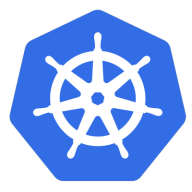![Cisco Container Platform [EOL] Logo](https://images.peerspot.com/image/upload/c_scale,dpr_3.0,f_auto,q_100,w_64/0dra2w8zbx5vrvwmhkdswx9l90ys.jpg?_a=BACAGSGT)

Find out what your peers are saying about Red Hat, Amazon Web Services (AWS), Kubernetes and others in Container Management.
| Company Size | Count |
|---|---|
| Small Business | 26 |
| Midsize Enterprise | 10 |
| Large Enterprise | 47 |
Cisco Container Platform is a fully curated, lightweight container management platform for production grade environments, powered by Kubernetes, and delivered with Cisco enterprise-class support. It reduces the complexity of configuring, deploying, securing, scaling and managing containers via automation coupled with Cisco’s best practices for security and networking. Cisco Container Platform is built with an open architecture using open source components, so you're not locked in to any single vendor. It works across both on-premises and public cloud environments. And because it’s optimized with Cisco HyperFlex, this preconfigured, integrated solution sets up in minutes.
Kubernetes (K8s) is an open-source system for automating deployment, scaling, and management of containerized applications.
It groups containers that make up an application into logical units for easy management and discovery. Kubernetes builds upon 15 years of experience of running production workloads at Google, combined with best-of-breed ideas and practices from the community.
We monitor all Container Management reviews to prevent fraudulent reviews and keep review quality high. We do not post reviews by company employees or direct competitors. We validate each review for authenticity via cross-reference with LinkedIn, and personal follow-up with the reviewer when necessary.